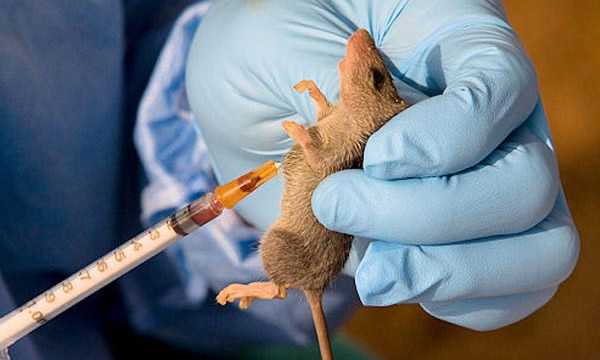
The ongoing battle against Coronavirus and Lassa fever in the country might be futile, if efforts are only concentrated on the big things, while the seemingly little things are overlooked.
As the governments, world bodies and other stakeholders tackle Coronavirus (Corovid19), which is yet to be reported in the country, while Lassa fever is being contained, preventive measures, such as frequent hand washing, wearing face mask and environmental hygiene, among others, are recommended at all levels to mitigate the spread of the deadly virus.
Now, practically everyone knows that the multimammate rat is the vector of Lassa fever. Once the infected rat contaminates food by passing the virus through its urine or faeces, and such is consumed, the person goes down with the fever.So, well-cooked and properly handled foods that are not exposed to rats cannot be infected.
But are there area (s) that are being neglected in this crusade? What about foods that are consumed raw, such as fruits and vegetables? How should these be handled?
Executive Director, Centre for Health, Equity and Justice (CEHEJ) Timothy Adewale said hospitals and other healthcare facilities play a critical role in national and local responses to emergencies, such as communicable disease epidemics like Lassa fever and Coronavirus. He, however, believes that if hospitals do not put in place adequate measures to prevent and control infection, it may amplify an epidemic by spreading the infection to patients, staff and visitors.
He said: “On leaving the hospital, these infected individuals may boost transmission in the community and thereby thwart the hospital’s overall epidemic response efforts. Henceforth, there is a great need for health practitioners to wash their hands more frequently. But how do you wash hands, when water is not available in our hospitals, even in times of an epidemic?
“Despite the alarming rate of the spread of the deadly Lassa virus, many of our hospitals have water supply shortages. There are no running taps for healthcare personnel to use. In many cases, there are improvised buckets with tap heads, which easily run out or sometimes, people use bailers to get water from big containers, at a time the world has moved to the use of censors, without the need to touch taps, which can further increase contamination rate.
“This is not only exposing patients to further danger, but even putting the lives of health care providers at great risk. Preventing the spread of infection to hospital occupants/staff, patients and visitors is an absolute priority and calls for appropriate measures.
“It is thus lamentable that most, if not all of our public health facilities do not have adequate provisions for water usage by hospital personnel. For example, there is currently water supply shortage at the University College Hospital, Ibadan, where taps are not running in many of the wards and access to water is quite difficult, even in the rest rooms, despite the fact that infrastructures for water supply with pipe networks had been put in place over 60 years ago.
“Public hospitals like the University College Hospital, Ibadan (UCH), Lagos University Teaching Hospital (LUTH) and other tertiary health establishments that have failed to make adequate water supply.
Adewale noted that government and healthcare employers should know that they have responsibilities toward their staff, which include duties to inform, protect, and support healthcare personnel, especially in times of epidemic. Senior Registrar at the Lagos State University Teaching Hospital LASUTH Ikeja, Dr. Cara Cookey said garri is not the only source of Lassa fever contamination. Lassa fever is spread through consumption of food and water contaminated by the excreta of the multimammate rat, as well as person-to-person transmission through infected blood and body fluids.
Cookey said: “Fruits and food items should be properly stored to prevent contact with the rats. Food items should be stored in rodent proof containers to prevent contamination with the rat droppings. Also, fruits should be washed and the outer skin peeled off before consumption.
“Hand sanitiser can be applied to sanitise the hands, but hand washing with soap and water, especially before consuming food remains the best means of prevention of Lassa fever. People can protect themselves and reduce the risk of spread of Coronavirus infection by regularly washing their hands with soap under running water. They should avoid close contact with anyone showing symptoms of respiratory illness. Do not attend or go to public/social gatherings, if ill to avoid being infected.”
Also, Associate Professor of Public Health Department of Community Health and Primary Health Care (PHC), Lagos University College of Medicine Ikeja, Lagos, Yetunde Kuyinu, explained that fruits should be properly handled and washed before consumption
She said: “Any fruit or vegetable that has been eaten by rats should be disposed entirely to avoid being infected by the virus. Fruits should be washed with salt under running water to eliminate germs and other unwanted things. “As for Coronavirus, aside regular hand wash with soap and water, people should also avoid touching eyes, nose and mouth with unwashed hands. They should cough into the elbow, if handkerchief is not available. Cover mouth and nose properly when coughing.”
END

Be the first to comment